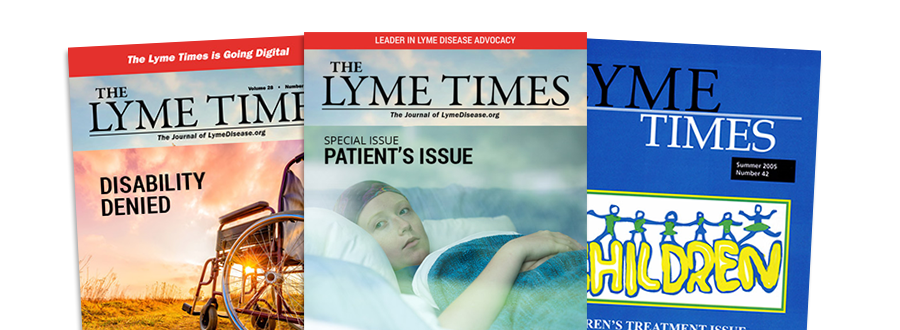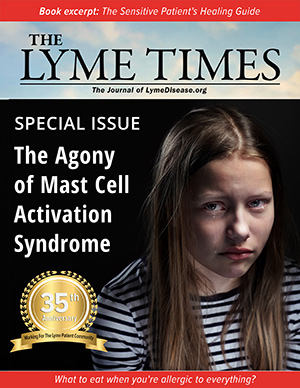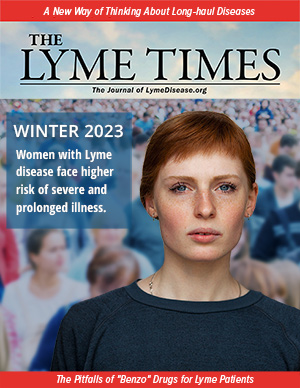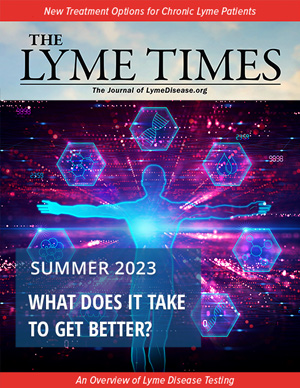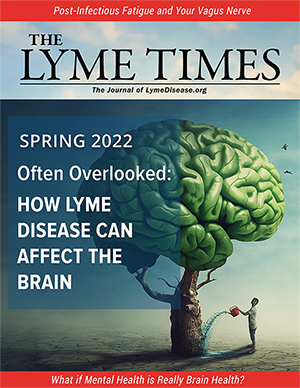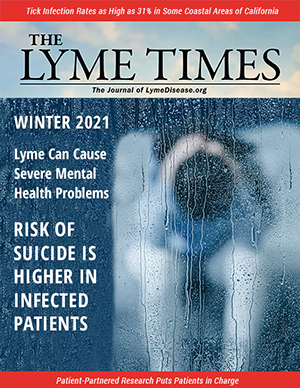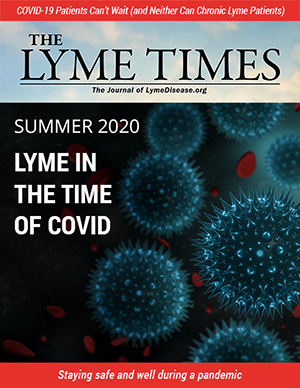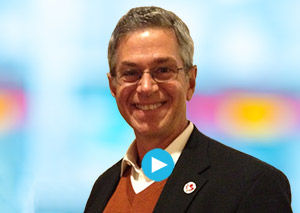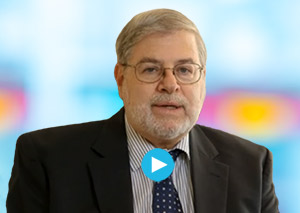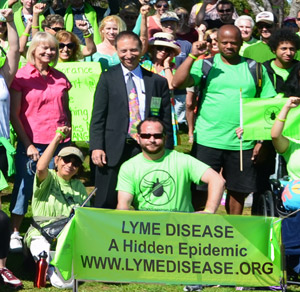- Home
- Find A Physician
- FIND A PHYSICIAN
- LymeTimes
- Current Issue
- Archives
- FEATURED LYMEDISEASE.ORG ISSUES
- Resources
- LYME LITERATE PHYSICIAN VIDEOS
- Physicians
- Members
- About Us
- Resources
I nfection-associated chronic illness” sounds like a mouthful. But using that name has turned out to be a crucial first step in getting scientists, health officials, doctors, patients, and the public at large to think differently about ailments that can keep people sick for years—with few or no options for getting better.
 For decades, people who remained ill after contracting Lyme disease, multiple sclerosis, ME/CFS and other poorly understood chronic conditions typically found themselves shunted aside by the medical establishment—often told they weren’t even sick. Federal support for researching better diagnostics and treatments for these disorders (or sometimes even acknowledging their existence) was minimal at best.
For decades, people who remained ill after contracting Lyme disease, multiple sclerosis, ME/CFS and other poorly understood chronic conditions typically found themselves shunted aside by the medical establishment—often told they weren’t even sick. Federal support for researching better diagnostics and treatments for these disorders (or sometimes even acknowledging their existence) was minimal at best.
And then the COVID pandemic hit. Before long, it became clear that some people survived the disease but continued to suffer profoundly debilitating symptoms. Soon, the term “long COVID” entered the public vocabulary. Experts estimate the condition has forced 1.6 million full-time workers out of the US labor market, with significant ripple effects throughout the economy and society at large.
Shifting the paradigm
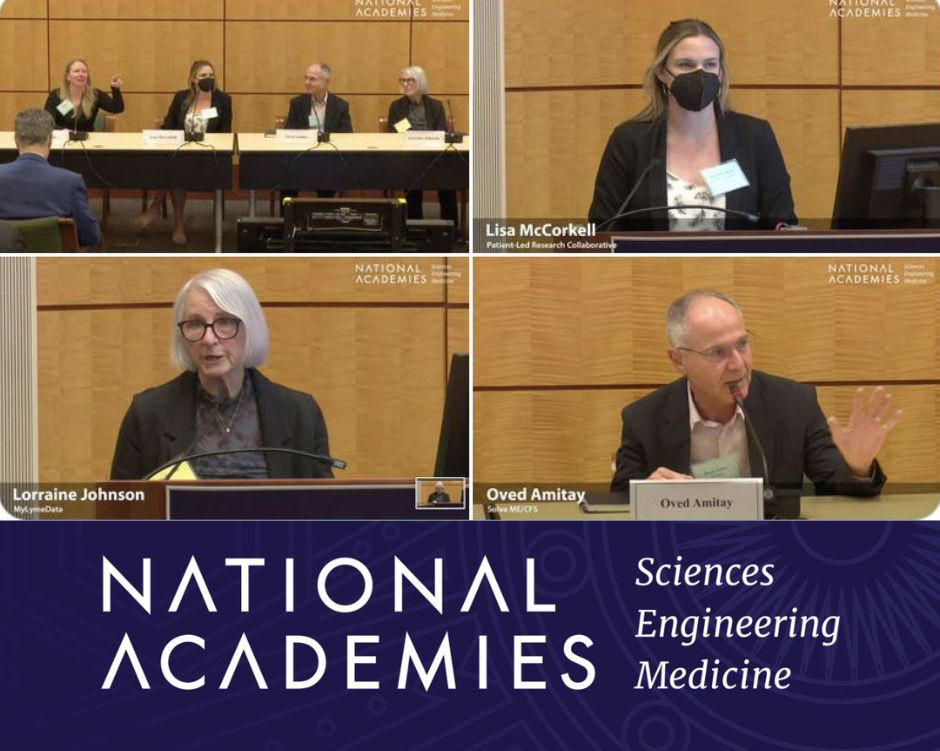 Fast-forward to June 29-30, 2023. The National Academies of Sciences, Engineering, and Medicine held a paradigm-shifting event in Washington DC titled “Toward a Common Research Agenda in Infection-Associated Chronic Illnesses: A Workshop to Examine Common, Overlapping Clinical and Biological Factors.”
Fast-forward to June 29-30, 2023. The National Academies of Sciences, Engineering, and Medicine held a paradigm-shifting event in Washington DC titled “Toward a Common Research Agenda in Infection-Associated Chronic Illnesses: A Workshop to Examine Common, Overlapping Clinical and Biological Factors.”
It brought together high-level health officials, prominent researchers, and knowledgeable patient advocates from around the country. Their shared goal was to find a way to work collaboratively for the benefit of all these “long haul” patients.
The presentations were enlightening, inspiring and immensely gratifying. As chronic illness author Meghan O’Rourke highlighted in her opening remarks, “When I was very sick, I really did lie in my bed and wish that someday a group of scientists might come together to take interest in the plight of all of us who live with infection-associated illness.”
And here they all were, in one place, paying rapt attention to the results of patient-led research, presented by Hannah Davis and Lisa McCorkell (long COVID) and Lorraine Johnson (Lyme disease)…….Join or login below to continue reading.
You must be a LymeDisease.org member to access this content.
